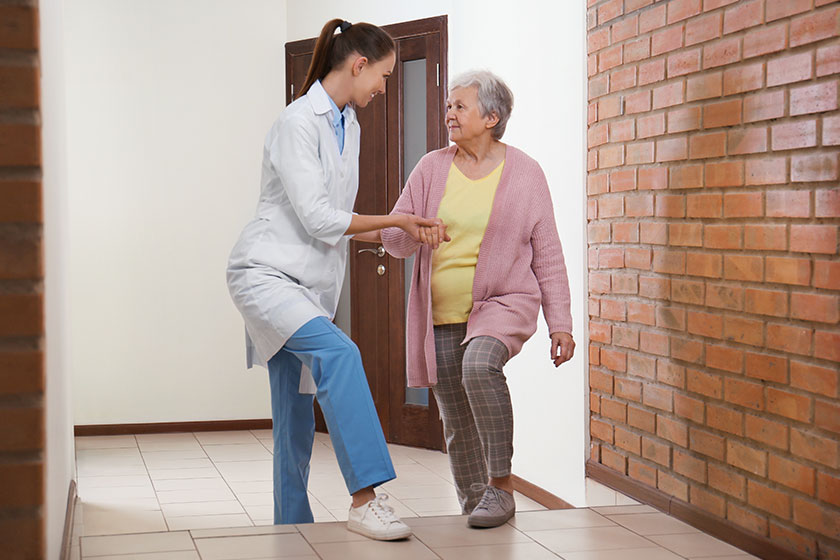Within 55+ retirement communities in North Carolina, like TerraBella Southport, residents have uncovered the valuable treasure of community gardens. These thriving and vibrant spaces serve as the heart of our community, fostering connections and enhancing the well-being of our residents. In this article, we will delve into the compelling reasons why initiating a community garden in 55+ communities in NC is a genuinely brilliant idea.
Promoting Active and Healthy Lifestyles
Gardening isn’t just about growing plants; it’s about nurturing a healthy and active lifestyle. At TerraBella Southport, residents of all backgrounds and experience levels come together to cultivate beautiful gardens filled with colorful flowers, aromatic herbs, and delicious vegetables. This shared endeavor encourages physical activity and outdoor engagement, helping seniors stay active and vibrant.
Digging, planting, weeding, and harvesting are all excellent forms of exercise that help maintain mobility and strength. Plus, spending time in the garden exposes residents to natural sunlight, promoting the production of Vitamin D, essential for bone health. It’s a simple yet effective way to maintain an active and healthy lifestyle in retirement.
The benefits extend beyond physical health. Gardening also offers mental and emotional rewards. It provides a sense of purpose, reduces stress, and boosts mood. Tending to and watching plants flourish can be a deeply fulfilling experience, enhancing residents’ overall well-being.
Creating a Sense of Belonging and Community
In a 55+ community, community gardens are more than just plots of land with plants. They are spaces where bonds are forged and a strong sense of belonging is cultivated. Residents work collaboratively, sharing their gardening knowledge and experiences, which fosters a deep sense of community.
Community gardens offer opportunities for social interaction and connection, promoting a vibrant social life among residents. It’s a place where friends are made, stories are exchanged, and laughter fills the air. Gardening together creates lasting friendships and strengthens the sense of community that TerraBella Southport prides itself on.
Moreover, the produce from these gardens often finds its way into communal kitchens, where residents can enjoy the fruits of their labor together. The shared meals create a warm and inviting atmosphere where residents gather, further solidifying the bonds of friendship and community.
Enhancing Food Security and Access to Fresh Produce
These gardens provide a sustainable source of fruits, vegetables, and herbs, reducing reliance on external food sources. Residents can enjoy a variety of homegrown, organic produce, contributing to their nutritional well-being. Plus, it’s a fulfilling way to take charge of their food supply, fostering a sense of self-reliance and security.
By cultivating their food, TerraBella residents enjoy fresh and healthy options and contribute to the community’s overall sustainability, making them an integral part of their food security solution.
Fostering Social Interaction and Friendships
Loneliness can be a significant concern for seniors, but at TerraBella Southport, community gardens become vibrant hubs of social interaction and friendships. Gardening together allows residents to connect, share stories, and build meaningful relationships.
Residents bond over their shared love for gardening as they work side by side. They exchange tips, collaborate on projects, and celebrate the joy of seeing their plants thrive. These interactions foster a sense of camaraderie and belonging that extends beyond the garden.
Community gardens in a retirement community also serve as a backdrop for events and gatherings. From garden parties to picnics, residents celebrate their achievements and enjoy the fruits of their labor. Through these shared moments, lifelong friendships are cultivated, enriching the social fabric of TerraBella Southport.
Encouraging Physical Activity and Exercise
Maintaining an active lifestyle is essential for seniors, and community gardens at TerraBella Southport provide a compelling incentive to stay physically active. Gardening activities, such as planting, weeding, and harvesting, offer low-impact exercises that help residents maintain mobility and strength.
Engaging in regular gardening tasks is an enjoyable way to stay active without formal exercise routines. It encourages movement, flexibility, and balance, all of which are vital for overall well-being in retirement.
Mental Health Benefits of Gardening
In the tranquil setting of TerraBella Southport, the mental health benefits of gardening shine brightly. For seniors, tending to a garden is not just a pastime; it’s a therapeutic journey that enhances their overall well-being.
Gardening provides a sense of purpose and accomplishment. As residents nurture their plants, they experience a profound connection with nature. This connection fosters a sense of mindfulness, reducing stress and anxiety levels. The gardening encourages residents to be present at the moment, allowing them to temporarily set aside worries and enjoy a mental break.
Furthermore, being outdoors and surrounded by greenery promotes relaxation and a positive outlook. The tranquility of TerraBella’s gardens serves as a peaceful retreat where residents can find solace and rejuvenate their spirits.
Learning and Sharing Gardening Skills
At TerraBella Southport, residents tend to their gardens and have the opportunity to learn and share their gardening skills continuously. The community’s gardening spaces serve as a platform for knowledge exchange and skill development.
Experienced gardeners often mentor those new to gardening, passing down valuable tips and techniques. This intergenerational learning fosters community and connection, where residents of different backgrounds and expertise come together to enrich each other’s lives.
Residents at TerraBella also have access to gardening workshops and educational programs, allowing them to expand their gardening knowledge and explore new aspects of this fulfilling hobby. From composting to organic gardening, these programs empower residents to become more self-reliant gardeners.
Sharing gardening skills goes hand in hand with building relationships. As residents collaborate on garden projects and learn from each other, bonds are strengthened, and friendships are formed. These connections contribute to a more vibrant and enriching community experience.







